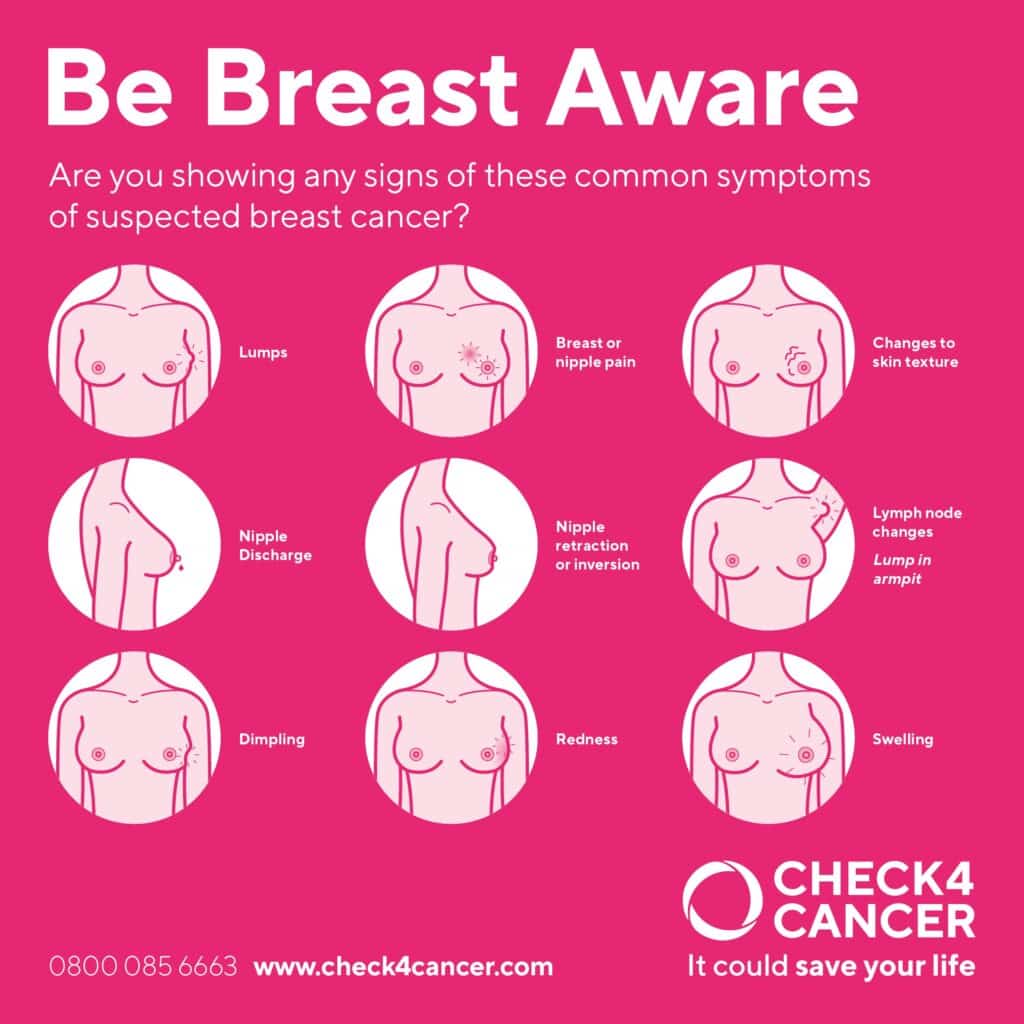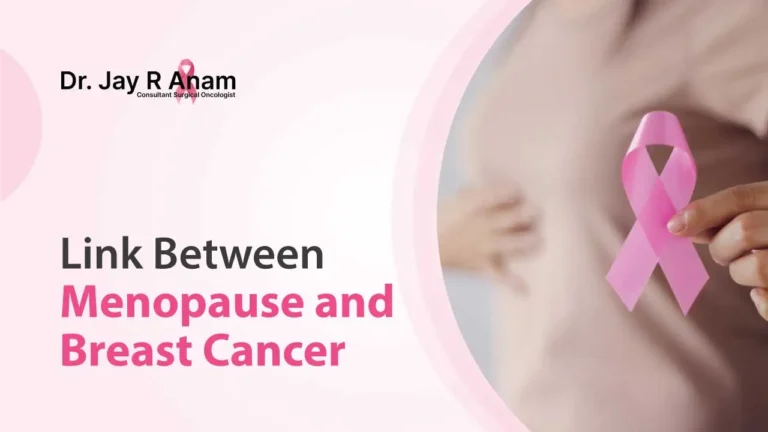Navigating menopause is a significant transition in a woman’s life, often accompanied by concerns about breast cancer risk. As women approach or experience menopause, understanding how this change affects their breast health is vital. This article explores the connection between menopause and breast cancer, providing insights and guidance for managing health risks during this stage.
How Menopause Affects Hormones and Breast Health
Menopause marks the end of a woman’s reproductive years, characterized by the cessation of menstruation and significant hormonal changes. Estrogen and progesterone levels drop, leading to physical and biological shifts, particularly in breast tissue.
- Breast Density Changes: Reduced estrogen levels can decrease breast density. While lower density may improve mammogram accuracy, it can also lead to sagging or changes in breast texture.
- Hormonal Influence on Breast Tissue: Estrogen promotes cell growth in breast tissue, which is a double-edged sword. While it’s necessary for normal functioning, prolonged exposure can increase the risk of cell abnormalities or cancer.
- Breast Tenderness and Discomfort: Many women experience changes such as tenderness or discomfort. While these are typically harmless, distinguishing between normal adjustments and warning signs is crucial.
Understanding these changes empowers women to monitor their breast health closely and seek medical advice when necessary.
Does Menopause Increase Breast Cancer Risk?

Breast cancer risk naturally increases with age, and menopause often coincides with this period. While menopause itself is not a direct cause of breast cancer, the hormonal fluctuations during this phase can modify risk factors.
Key Factors Influencing Risk
- Age and Timing of Menopause:
- Early menopause (before 45) is associated with reduced breast cancer risk due to shorter lifetime exposure to estrogen.
- Late menopause (after 55) increases risk because of prolonged estrogen exposure.
- Body Weight and Fat Distribution:
- After menopause, estrogen is primarily produced by fat tissue. Excess body weight, especially abdominal fat, can raise estrogen levels, contributing to breast cancer risk.
- Lifestyle Factors:
- Alcohol consumption, physical inactivity, and smoking are significant contributors. Reducing these risk factors can help mitigate the overall risk.
- Reproductive History:
- Women who experience menopause later, have no children, or had their first child after age 30 may face slightly elevated risks.
Genetics and Menopause
Women with a family history of breast cancer or mutations in genes like BRCA1/2 should consult healthcare providers to assess personalized risk. Genetic testing and preventive strategies may be recommended in such cases.
The Role of Hormone Replacement Therapy (HRT)
Hormone Replacement Therapy (HRT) is commonly used to alleviate menopausal symptoms like hot flashes and mood swings. However, its link to breast cancer risk has made it a topic of caution.
- Combined HRT (Estrogen + Progestin): Prolonged use is associated with an increased risk of breast cancer.
- Estrogen-Only HRT: Typically prescribed for women without a uterus, it carries a lower risk compared to combined HRT.
- HRT Duration and Timing: Using HRT for a short duration and starting it soon after menopause may reduce risks compared to starting later or prolonged use.
Guidelines for HRT Use
- Use the lowest effective dose for the shortest duration.
- Discuss personal and family medical history with a healthcare provider.
- Explore non-hormonal alternatives like lifestyle changes, dietary adjustments, or complementary therapies for managing symptoms.
Regular health evaluations and screenings are critical for women using HRT to ensure early detection of any potential issues.
Menopause Symptoms and Breast Health Concerns
Menopause often brings symptoms that may overlap with breast cancer warning signs. Understanding which symptoms are normal and which require medical attention is vital.
Common Changes During Menopause:
- Breast Texture and Size: Hormonal shifts can cause breasts to lose firmness, leading to sagging or a change in size.
- Tenderness or Lumps: While tenderness is normal, any persistent lumps should be evaluated.
- Breast Pain: Pain during menopause is often unrelated to cancer, but unexplained or persistent discomfort should not be ignored.
When to Seek Medical Advice:
- Unusual lumps or changes in breast appearance.
- Persistent or severe pain.
- Nipple discharge or changes in shape.
Screening and Monitoring During and After Menopause
Regular screening is a cornerstone of breast cancer prevention, particularly during and after menopause when the risk increases.
Recommended Screening Guidelines
- Mammograms: Women aged 50 and above should undergo mammograms annually or biennially. Higher-risk individuals may require earlier and more frequent screenings.
- Additional Imaging: Women with dense breast tissue or other risk factors may benefit from ultrasounds or MRIs.
- Self-Examinations: Familiarity with one’s breasts helps in detecting changes early. Monthly self-checks are encouraged.
Open communication with healthcare providers ensures a personalized approach to screening and risk management.
Reducing Breast Cancer Risk During Menopause
Adopting a healthy lifestyle can significantly lower breast cancer risk during and after menopause.
Key Strategies:
- Maintain a Healthy Weight: Obesity after menopause is a significant risk factor. Aim for a balanced diet and regular exercise.
- Stay Active: At least 150 minutes of moderate physical activity per week can help reduce cancer risk.
- Limit Alcohol and Avoid Smoking: Alcohol increases estrogen levels, while smoking is a known carcinogen.
- Balanced Diet: Emphasize fruits, vegetables, whole grains, and lean proteins. Foods rich in antioxidants and omega-3 fatty acids may offer protective benefits.
Supplements and Medications:
- Vitamin D and calcium are essential for bone health but may also play a role in overall wellness. Discuss supplementation with a healthcare provider.
Psychological and Emotional Well-being
The physical changes of menopause can impact emotional health. Stress management techniques like yoga, meditation, or counseling can support mental wellness. A positive outlook, combined with proactive health measures, contributes to better overall health during this phase.
Key Aspects of Menopause and Breast Cancer Risk
| Aspect | Details |
|---|---|
| Hormonal Changes | Decline in estrogen and progesterone; affects breast density and tissue health. |
| Age Factor | Risk increases with age; menopause typically occurs around 50, coinciding with higher risk. |
| Early vs. Late Menopause | Early menopause (before 45) reduces risk; late menopause (after 55) increases risk due to prolonged estrogen exposure. |
| Hormone Replacement Therapy | Combined HRT increases risk; estrogen-only HRT carries lower risk but depends on individual factors. |
| Lifestyle Factors | Healthy weight, regular exercise, limited alcohol, and a balanced diet can lower breast cancer risk. |
| Screening Recommendations | Mammograms annually or biennially for women 50–74; personalized plans for high-risk individuals. |
| Warning Signs | Lumps, nipple discharge, persistent pain, or changes in breast size or shape warrant medical attention. |
| Prevention Strategies | Lifestyle modifications, regular screenings, and genetic counseling for high-risk individuals. |
Conclusion
Menopause is a natural part of aging, bringing hormonal changes that may influence breast cancer risk. While these changes are unavoidable, understanding their implications empowers women to take control of their health. Regular screenings, informed decisions about HRT, and a proactive lifestyle can significantly reduce risks.
By engaging with healthcare providers and staying informed, women can navigate menopause with confidence, ensuring both their breast health and overall well-being are prioritized.
FAQs
1. Does menopause increase breast cancer risk?
While menopause itself doesn’t cause breast cancer, late menopause (after 55) increases risk due to prolonged estrogen exposure, whereas early menopause (before 45) reduces risk.
2. Does Hormone Replacement Therapy (HRT) raise breast cancer risk?
Yes, combined HRT (estrogen and progestin) increases breast cancer risk, while estrogen-only HRT has a lower risk but is typically prescribed after hysterectomy.
3. What are the breast cancer warning signs during menopause?
Watch for unusual lumps, nipple discharge, persistent breast pain, or changes in size, shape, or texture. Consult a doctor if these occur.
4. How often should menopausal women get screened?
Women aged 50–74 should get mammograms annually or biennially, with personalized plans for those at higher risk.
5. Can lifestyle changes reduce breast cancer risk?
Yes, maintaining a healthy weight, regular exercise, limiting alcohol, and eating a balanced diet can help lower risk.
References
Smith BL et al., NEJM Evid. 2023; DOI:10.1056/EVIDoa2200333.
American Cancer Society: www.cancer.org
National Institute on Aging: www.nia.nih.gov
Huang Y et al., Cancer Epidemiol Biomarkers Prev. 2024.
WebMD: www.webmd.com


